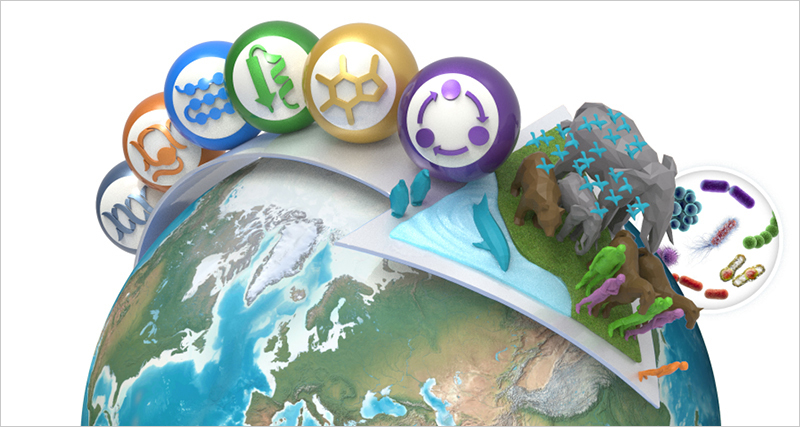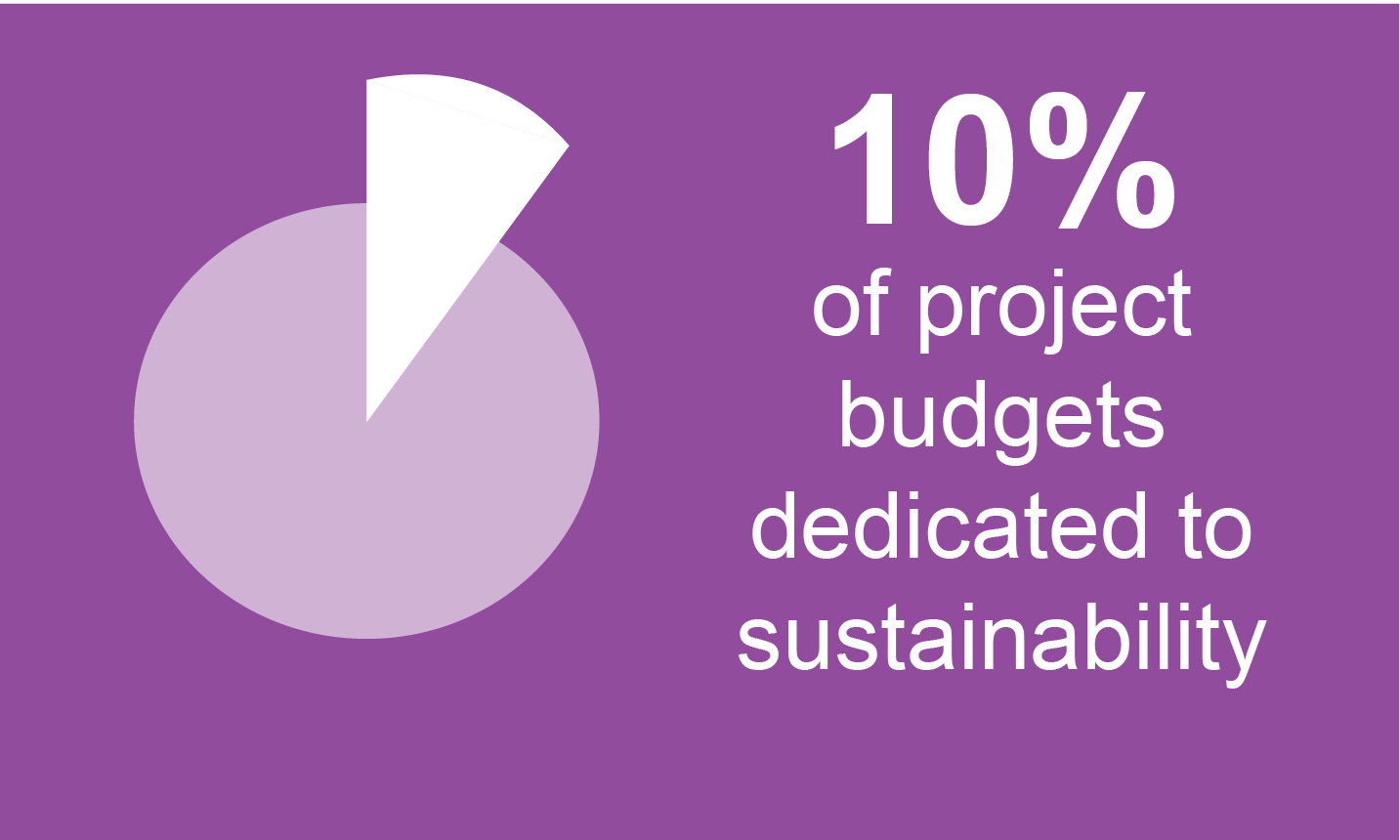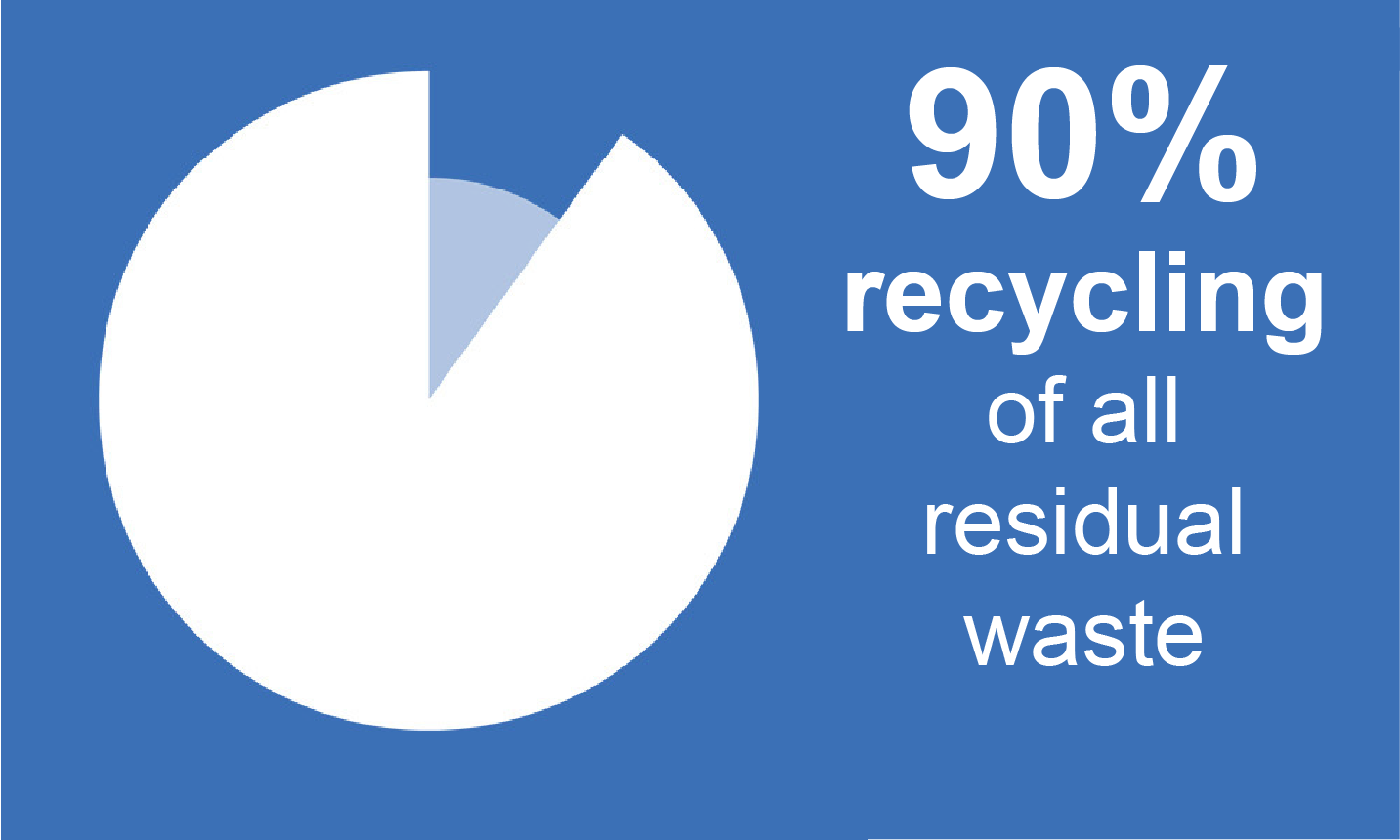Download the EMBL Sustainability Strategy
Our strategy to transition to a sustainable organisation
Transitioning to a sustainable organisation
Sustainability at EMBL reduces our environmental impact, finds solutions to the major global challenges and promotes sustainable science.
We are living in a time of climate and ecological crisis. Our Sustainability Strategy sets out how EMBL will respond to this challenge.
A materiality analysis carried out in 2020 identified seven key topics which make up our three pillars of sustainability: doing environmentally responsible research, doing environmentally relevant research, and promoting sustainable science. We have set ourselves stretching targets to ensure we transition to a sustainable organisation.
Our strategy to transition to a sustainable organisation
“I am proud that EMBL is committing to halving its own carbon footprint over this decade and aligning with the scientific consensus, in addition to making ambitious reductions in waste and resource use.”
– Brendan Rouse, Head of Sustainability
In 2020 we conducted a materiality assessment with input from staff, our leadership team, and key external stakeholders. The assessment identified the key topics we focus on in our transition to become a sustainable organisation.

Our operational focus is on: Energy Consumption & Emissions, Waste & Resource Efficiency, Business & Commuter Travel, and Sustainable Construction.

The biggest impact EMBL can have on the environment is through the insights and knowledge created by our research.

We want to lead a transition to more sustainable scientific research across Europe through transparency and openness.
Our ambitious sustainability targets are:
Our 2019 carbon emissions have been assessed by the Science Based Target initiative tool and it has calculated that a 50% reduction of our Scope 1 and 2 emissions is in line with the Paris Climate Agreement to limit global warming to 1.5°C above pre-industrial levels. This target covers Scope 1 & 2 emissions for those sites for which we have reliable energy consumption data.

The carbon emissions associated with our business travel is our biggest Scope 3 carbon emission. It is therefore responsible to set a long term target to reduce this impact.
The Science Based Target tool has indicated a 50% reduction of this source of emissions is in line with the Paris Climate Agreement to limit global warming to 1.5°C above pre-industrial levels. This target covers business travel paid for by EMBL, including visitors travelling to EMBL sites which EMBL funds. It does not include travel by visitors which is not paid for by EMBL.

We will ring-fence 10% of project budgets to deliver our sustainable construction principles.

Like all life science research organisations, our activities produce a lot of waste, both in the methods used to carry out life science research and in the operations of large scale laboratories.
We believe the most ambitious and effective target is to reduce the total waste generated as the first step in the waste hierarchy. This target extends to our sites for which we have waste data, currently Heidelberg. We will work with our host organisations to improve waste data for our other sites so they can also be included.

Life science research involves methods which require a lot of different components and vessels to store, transfer and host our chemical and biological samples and reagents.
We therefore acknowledge to a certain extent, the inevitable need to use plastic consumables which are single-use. However, we will work with our scientific groups to identify where single-use consumables can be substituted with alternatives or reused. We will also eliminate single use plastics from our operations, such as in the canteens and cafeterias.

We will work with our host organisations and waste management providers to ensure that 90% of the waste which we generate enters the recycling waste stream and is recycled into new products.
